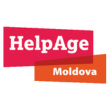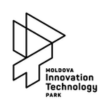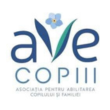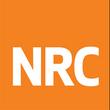Organizații vizate:
Achiziții de bunuri și contractări de servicii
- Detalii
- Categorie: Achiziție bunuri, Contractare Servicii
Call for the Independent Evaluation of the Project “Better opportunities for Young Women and Men Not in Education, Employment and Training in Moldova (NEET Inclusion Initiative)
Informațiile prezentate în articolul de mai jos pot să nu mai fie actuale sau să nu mai reflecte activitățile și programele curente. Anunțul este păstrat în arhivă pentru a asigura transparența și accesul public la informațiile despre inițiativele și proiectele implementate anterior.
East Europe Foundation is announcing a call for the Independent Evaluation of the Project “Better opportunities for Young Women and Men Not in Education, Employment and Training in Moldova (NEET Inclusion Initiative)”, funded by the European Union and co-funded by Sweden. The independent review shall provide EEF with a technical and professional assessment of results, achievements, key challenges and lessons learnt from the implementation of the project.
Background
In February 2021 the East Europe Foundation launched the implementation of the Project “Better opportunities for Young Women and Men Not in Education, Employment and Training in Moldova (NEET Inclusion Initiative)”. Funded by the European Union and co-funded by Sweden, the action is implemented in partnership with the National Youth Council of Moldova (NYC), Centre Partnership for Development (CPD), Agency for Regional Development from the Transnistrian region (ARD).
The overall objective of the project is to contribute to better social inclusion and empowerment of NEET (not in education, employment or training) young women and men in Moldova through civil society engagement. The project entails three specific objectives: (i) mobilised civil society effectively advocates for more inclusive policies aiming at reducing youth NEET rate; (ii) empowered local CSOs contribute to more inclusive youth services targeting NEET youth; (iii) NEET young people have more self-employment opportunities by accessing more entrepreneurship, including social entrepreneurship programs.
The total budget of the 30 months program is EUR 1,111,111 EUR.
Objective
The independent review shall provide EEF with a technical and professional assessment of results, achievements, key challenges and lessons learnt from the implementation of the project.
The assessment will:
- Review and document the validity of the project’s original conceptual framework and proposed interventions, and how well the project responded to changes in the program context.
- Assess the results of the project and progress toward the expected outcomes. Particular focus will be placed on the effectiveness of youth CSOs in engaging with their constituents and advocating for more inclusive policies and services towards NEET young women and men.
- Assess effectiveness and efficiency of the project.
- Identify project successes and lessons learned.
- Provide recommendations to further advance NEET Youth inclusion in Moldova.
Scope of work
The review will consist of document reading, interviews and field study, debriefing meeting, as well as presentation of a review report.
The review should provide answers to the following questions:
- Assess the relevance of the supported project in the country context:
- Did the intervention respond to the needs of the target groups?
- Was the operation in line with EU development policy and strategies?
- Evaluate the efficiency of the project:
- How well was the availability and use of inputs and resources managed?
- How well were the activities implemented? How well were the outputs achieved?
- How well were the partners involved and contributing?
- Consider the effectiveness of the project:
- How well has the operation achieved its expected outcomes?
- Was the purpose of the project achieved?
- Examine the sustainability of the project:
- What is the viability of the continuation of benefits after the end of the operation?
- What is the level of ownership of the operation by the target group and relevant stakeholders?
- Did the operation contribute to partners' capacity development?
- Assess the extent to which the project paid attention to cross-cutting issues.
- Have practical and strategic gender interests been adequately considered in the operation's strategy?
- Has democratic governance been mainstreamed in the operation?
- Did the operation actively contribute to the promotion of human rights?
The project evaluation shall result in written recommendations on the above-mentioned issues. In addition, the expert/review team is encouraged to include recommendations, considered to be of relevance for promoting the aim of the Project Evaluation.
Approach and methods of work
The Expert/Review Team will carry out its tasks through:
- Desk review of project documents and reports;
- Discussions with the staff members and grantees;Interviews with partners and stakeholders;
- Field visits to selected sites;
- Consultation meetings.
- Other relevant data collection methods.
It is expected that the evaluation will be conducted throughout March 2023 – July 2023 with a preliminary draft report submitted to EEF-M by June 30, 2023. The final report should be submitted to EEF no later than July 31, 2023.
The evaluator/evaluation team
The proposals could be submitted by individuals, teams of experts or legal entities. The evaluator/evaluation team should have relevant evaluation experience in the field of civil society development and program management. The minimum requirements include:
- Experience working in Moldova and/or other countries of the former Soviet Union is highly desirable;
- Minimum three years of related experience;
- Proven working experience with civil society organizations (CSO), with special emphasis on NEET ;
- Working experience with international organizations and/or European Union would be an advantage;
- Excellent oral and written skills in English and
- Knowledge of Russian will be an asset.
Selection criteria
- Experience of the expert(s)/legal entity in relevant fields;
- The quality and applicability of methodology proposed;
- The proposed time-frame;
- The requested price for services.
Deliverables
The key products expected from this evaluation are:
- The evaluation methodology;
- A comprehensive analytical report in English. The report should, as a minimum, include the following contents:
- Executive summary;
- Introduction;
- Description of the evaluation methodology;
- Analysis of the situation with regard to the outcome, the outputs, the activities, the inputs and the partnership;
- Key findings (including best practices and lessons learned)
- Conclusions and recommendations
- Annexes: field visits, people interviewed, documents reviewed, etc.
All deliverables will become the property of EEF.
Application package
The applicant should submit the following documents:
- CV reflecting the relevant experience of the applicant with at least 3 references;
- Examples of previous evaluations performed by the applicant if applicable;
- Short vision of achieving the task, including the evaluation methodology;
- A tentative timetable for preparation, field-work, analysis and finalization of the Report;
- Detailed budget for the evaluation in EUR (total price, daily fee, travel costs, communications, fees, etc.)
Submission
The deadline for submissions is March 3, 2023.
The application should be submitted to the e-mail address: concurs@eef.md with “Evaluation NEET Inclusion Initiative” in the subject line.
All questions regarding this task shall be addressed in written to Andrei Brighidin, Director for Development, Monitoring and Evaluation at andrei.brighidin@eef.md
- CICDE prelungește concursul privind ocuparea funcției de specialist principal/ specialistă principală (managementul resurselor umane și al documentelor)
- BAA Digore & Partners angajează: Office Manager
- Instituția Publică Centrul Național pentru Energie Durabilă anunță prelungirea termenului de aplicare la concurs pentru funcția specialist principal în cadrul Fondului pentru Eficiență Energetică în sectorul Rezidențial din Moldova (FEERM)
- Project Analyst (NPSA-8), Promoting Agricultural Development and Quality Employment - UNDP Moldova
- Keystone Moldova angajează coordonator de proiect
Achiziții și Contractări pe Telegram
Nu pierdeți niciun anunț de achiziție bunuri/contractare servici postat pe site! Urmăriți Canalul dedicat pe Telegram:

Top organizatii
2025 CIVIC DIGITAL SOLUTIONS
Email: support@portal.civic.md








